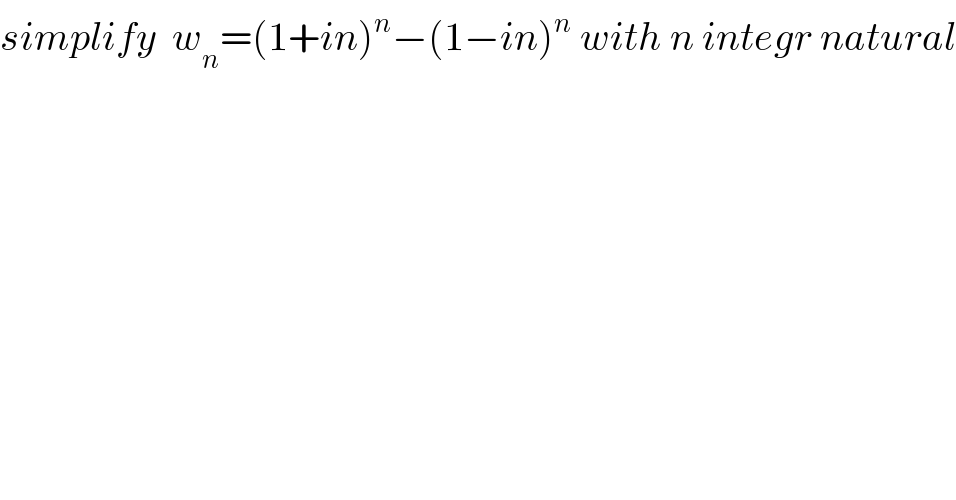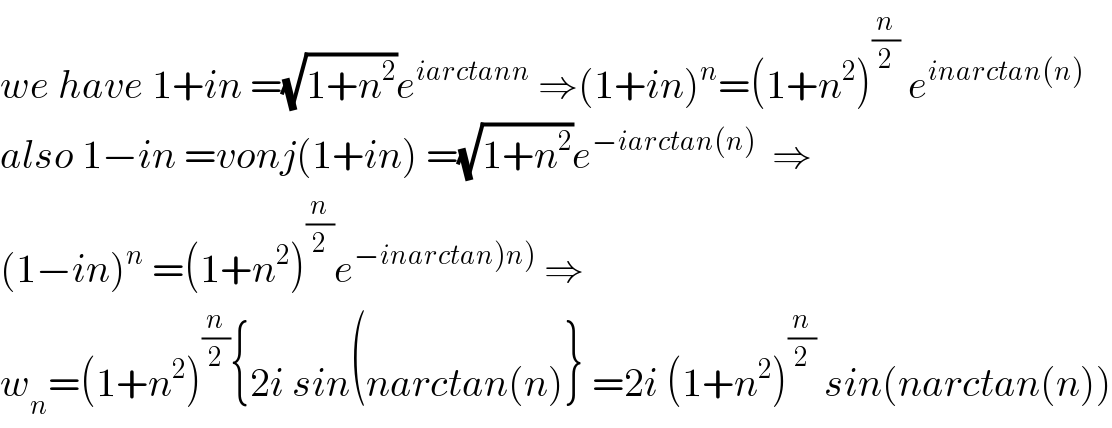
Question and Answers Forum
Previous in Relation and Functions Next in Relation and Functions
Question Number 66032 by mathmax by abdo last updated on 07/Aug/19

Commented by mr W last updated on 08/Aug/19

Commented by mathmax by abdo last updated on 08/Aug/19

